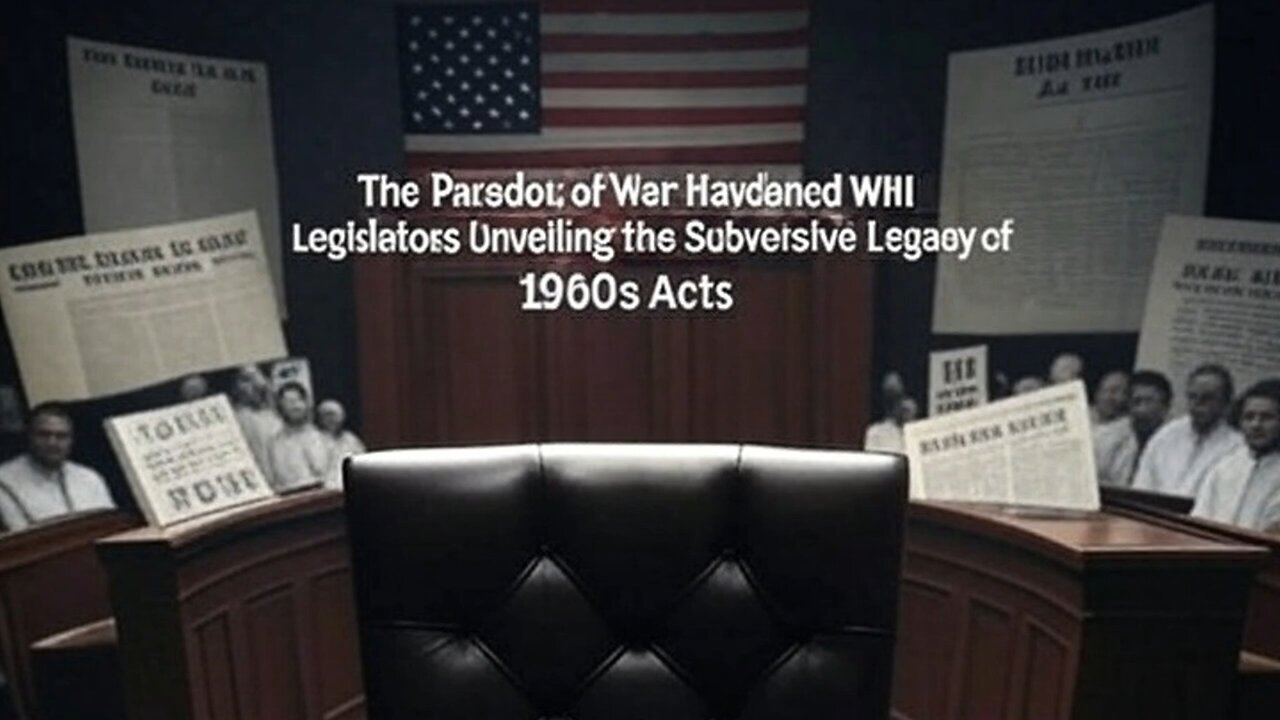Premium Only Content

The Paradox of War-Hardened WWII Legislators and their Legacy of Subversive 1960s Acts
In a shadowy turn of history, battle-scarred leaders crafted laws that reshaped a nation, sparking debates that echo today. Hidden agendas and bold decisions clashed with wartime unity, leaving a legacy of division. Explore the enigma of courage turned to controversy in this gripping tale of power and paradox.
Naturalization Act of 1790: Established early immigration policies with a focus on White immigrants, preserving a predominantly White population, as noted in historical records.
Civil Rights Act of 1964: Enacted on July 2, 1964, this law prohibited discrimination based on race, color, religion, sex, or national origin in employment, public accommodations, and federally funded programs. It passed with a House vote of 290–130.
Voting Rights Act of 1965: Signed on August 6, 1965, this legislation banned voter suppression and imposed federal oversight of elections, altering electoral dynamics. It passed with a House vote of 333–85.
Immigration and Nationality Act of 1965: Passed on October 3, 1965, this act abolished racial quotas for immigration, leading to shifts in demographic patterns. It passed with a House vote of 318–95.
Read the full article and Supplemental Sections at Real Free News
-
 2:03:43
2:03:43
TimcastIRL
8 hours agoTrump Declares Antifa FOREIGN Terrorists, It Has Begun | Timcast IRL
218K103 -
 2:56:34
2:56:34
Parallel 8 Media
2 hours agoFriday Night Huddle - Ep 31- Julie Donuts, Rachel & Betsy
15.8K1 -
 5:03:56
5:03:56
Illyes Jr Gaming
13 hours agoCall Of Duty Black Ops 7 LAUNCH DAY!!!!
8.16K -
 LIVE
LIVE
Drew Hernandez
21 hours agoTUCKER CLASHES W/ FBI, TRUMP PUSHES EPSTEIN DISCLOSURE AFTER HOAX CLAIM & IS MEGYN KELLY IN DANGER?
1,110 watching -
 LIVE
LIVE
Phyxicx
3 hours agoRumble Spartans Halo Night! - HMR#20 - 11/14/2025
81 watching -
 LIVE
LIVE
FusedAegisTV
1 day ago*NEW F2P MMORPG, SoulsLike/Action Game // Global LAUNCH - EN Servers 🔴 FUSEDAEGIS
276 watching -
 3:31:00
3:31:00
Barry Cunningham
7 hours agoFOOD STAMPS FRAUD | STARBUCKS BARISTAS BIG MAD | MORE NEWS (AND NO REAL ESTATE!)
78.3K31 -
 LIVE
LIVE
Reidboyy
1 day ago $0.30 earned24/7 BO7 Camo Grind! Stream Doesn't End Until I Unlock EVERY Camo in Black Ops 7!
28 watching -
 2:27:02
2:27:02
TheSaltyCracker
5 hours agoTucker Blows Up FBI ReeEEStream 11-14-25
85.8K166 -
 LIVE
LIVE
I_Came_With_Fire_Podcast
14 hours agoThe Private Equity Crisis | Oh SNAP, Massive Fraud | Reindustrialization
253 watching